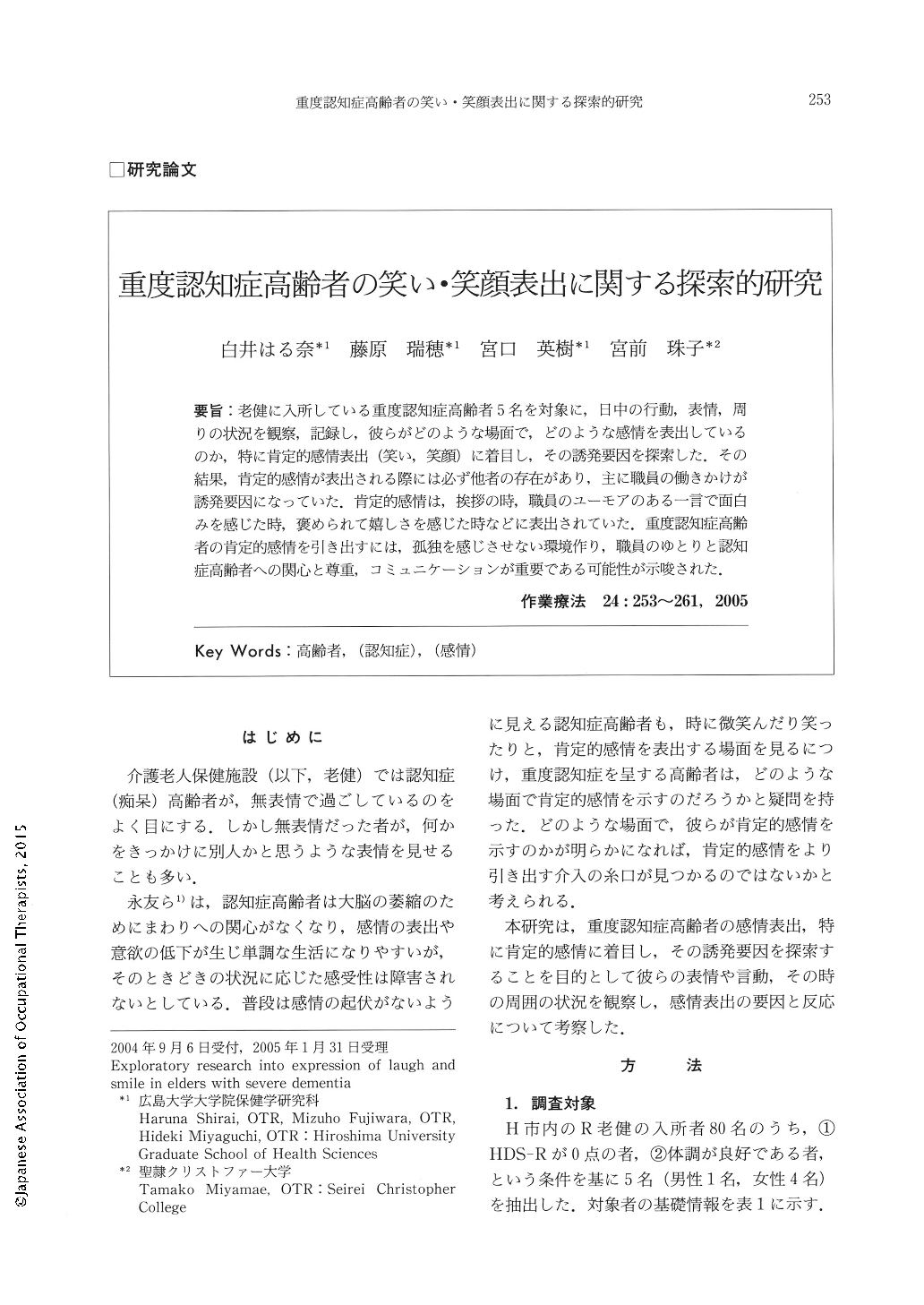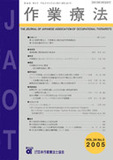Japanese
English
- 販売していません
- Abstract 文献概要
- 1ページ目 Look Inside
- 参考文献 Reference
- サイト内被引用 Cited by
要旨:老健に入所している重度認知症高齢者5名を対象に,日中の行動,表情,周りの状況を観察,記録し,彼らがどのような場面で,どのような感情を表出しているのか,特に肯定的感情表出(笑い,笑顔)に着目し,その誘発要因を探索した.その結果,肯定的感情が表出される際には必ず他者の存在があり,主に職員の働きかけが誘発要因になっていた.肯定的感晴は,挨拶の時,職員のユーモアのある一言で面白みを感じた時,褒められて嬉しさを感じた時などに表出されていた.重度認知症高齢者の肯定的感情を引き出すには,孤独を感じさせない環境作り,職員のゆとりと認知症高齢者への関心と尊重,コミュニケーションが重要である可能性が示唆された.
The purpose of this research was to find out when clients with severe dementia felt positive feelings and what made them laugh and smile.
Five such clients whose HDS-R scores were 0 point, and who were living in a nursing home, were observed by the first author from 9:00 to 17:00 on one usual day. The results showed that, when laugh and smiles happened, there were other people present. Laughs and smiles resulted from communication. There was almost no communication between clients. Three clients smiled at others voluntarily as a social communication smile, but most smiles and laughs came from interaction with staff like care workers, nurses, doctors and occupational therapists-for example, greetings, touching, staff members' expressions of gratitude to clients, singing a song together, and so on. The more severe the dementia, the more difficult it is to do something voluntarily, and to communicate with others. Important strategies to make these clients feel positive include : taking interest in them, having respect for them as human beings, creating a comfortable environment, not making clients feel lonely, and sharing good times and places with clients. Communication is so important, both verbal and non-verbal.

Copyright © 2005, Japanese Association of Occupational Therapists. All rights reserved.


